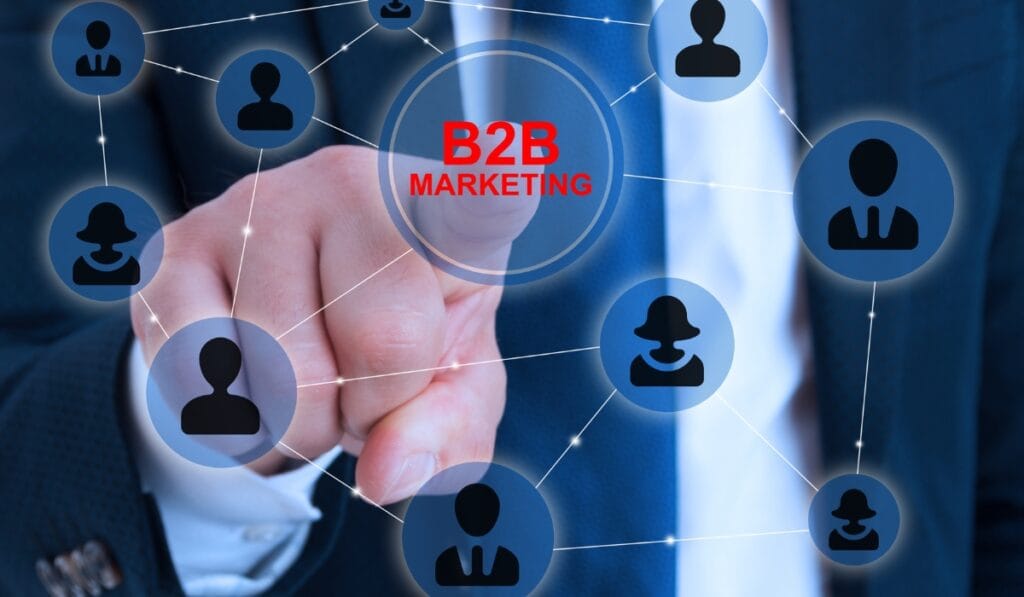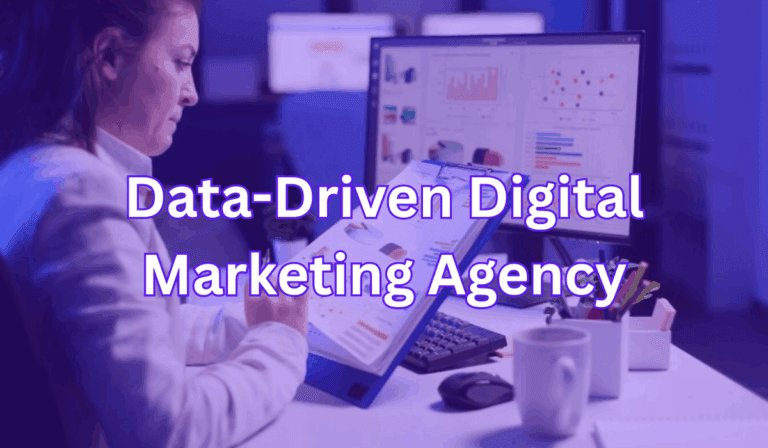Marketing automation is now the foundation of B2B growth, helping companies reduce their workload, boost lead generation, and improve revenue. Yet, many businesses are looking for ways to create a successful B2B strategy for marketing automation that is in line with the needs of each business. If you’re among the latter, you’re at the right place.
The goal of this article is to define what marketing automation is, define its main advantages, and show you how you can create an automated strategy to suit your B2B enterprise with a few actionable suggestions and information.

What is Marketing Automation, and Why Do Businesses Need It?
Have you ever thought about what businesses do to keep their marketing going and without a pause? Answer: Marketing automation.
Marketing automation is the use of software for automatizing repetitive tasks for example, email campaigns and lead nurturing. It also includes segmentation of customers, as well as monitoring performance.
For B2B businesses that means less time being juggling manual work instead of focusing on the strategy and personalization. This ensures the highest quality of interaction with customers and leads throughout the sales funnel. It allows firms to focus on their work and not be pushed.
What are the main advantages of automation in marketing?
If properly executed when implemented correctly, the right business-to-business marketing automation plan could revolutionize the way firms approach marketing. It can provide numerous advantages.
Improved Lead Management
Through automation of processes such as lead scoring and segmentation companies can pinpoint the most lucrative leads in a short time. It allows sales personnel to spend their time and energy on prospects with high value.
Enhanced Personalization
Automation tools allow B2B firms to send precisely targeted messages to prospective customers. By using audience segmentation, the leads are provided with messages specific to their individual issues, which increases their engagement.
Faster Campaign Execution
The process of launching new campaigns can be faster and more efficient with automated tools. From making posts scheduleable to automating email sequences that are personalized the manual work load is reduced making it easier to streamline and carry out more frequently executed actions.
Data-Driven Insights
Automated tools provide analytics that enable businesses to determine which strategies are working and what’s not. This information can aid in adjusting the strategy, and increase returns over time.
How to Build an Effective B2B Marketing Automation Strategy
Once you have a better understanding of that, there is a “why” behind marketing automation, then the next thing to do is to find out the best way to implement an effective strategy.
What objectives should be defined in order to implement marketing automation?
Prior to incorporating marketing automation in your B2B process, it’s essential to establish clear goals. Ask yourself the following questions:
- Are you trying to get better leads?
- Are you trying to improve the rate of conversion within your funnel for inbound traffic?
- Are you focusing on improving your customer retention?
The goals you set will dictate how you organize your workflow automation, ranging beginning with content creation and ending with managing data.
What are the tools your company should use?
A good marketing automation system could be the difference between your plan’s success and failure. Popular automated platforms, like HubSpot and Konsolve, offer solutions for marketing via email and CRM, customer relations management (CRM), and lead management.
In selecting a software be sure to consider things like user-friendliness, capacity and the integration capability in your current software platform. Konsolve’s automated solutions include, for example, a variety of solutions created to be flexible that caters to businesses in all sizes.
How can personalization help your performance?
One of the greatest features in B2B automation is the ability to offer a specific content offering to your prospects. Examples:
- You can segment leads based on business size, industry type, or even the way they behave.
- Make targeted email marketing campaigns using customized subject lines and messages.
- Utilize dynamic content on pages for landing that change according to previous interactions.
Personalization not only increases participation but also shows your customers that you are aware of the needs of your audience.
How can you produce top-quality, automatized material?
Do you notice that some marketing campaigns catch your eye quickly, whereas others seem insignificant? It’s the difference between general text and well-designed automated content.
Develop a library of contents which resonates with your target audience in every phase of the selling cycle. It doesn’t matter if it’s blog articles demonstration videos, blog posts, or even gated eBooks Each piece of content needs to provide an added value, and should be aligned with your goals for nurturing.
Make sure to use tools to create content, such as Jasper or Konsolve’s marketing solutions to make the process easier without sacrificing the quality.
What KPIs are important to track?
If you don’t track the performance of your strategy, you will not be able to determine if your plan is successful. The most important metrics to track are:
- Rates of conversion from lead-to-customer
- Click-through and open rates for campaigns via email
- Return on Investment for every campaign
- The customer’s engagement is across multiple different touchpoints
Tracking these KPIs can help you fine-tune the strategy as time passes.
Why Should Businesses Care About Marketing Automation?
One of the more frequent concerns we get is, “Why bother with automation when manual effort works just fine?”
The solution lies in the problems B2B firms face today. With sales cycles that are longer with a variety of decision-makers, as well as increasing pressure to prove the ROI of their efforts, manual methods have become ineffective. Automation gives an opportunity to keep track of leads, improve campaigns, and provide personalized customer experiences through every step of the buyer’s journey, all of which are increasingly essential to staying competitive in the present marketplace.
Here are a few important benefits you should consider if you are considering an automation plan for B2B businesses:
- Lead nurturing Automation assures constant communication with potential customers via regular and personal email, news, or reminders regarding your product or service.
- Better Analytics Access to specific metrics about open rates, click-throughs and conversions, the automation tools help evaluate the effectiveness of a campaign and make adjustments to improve it.
- Cost efficiency Automating repetitive activities allows your team of marketers to concentrate their efforts and imagination on projects that need a personal touch.
Marketing automation ultimately improves your capacity to collaborate with sales and marketing teams, improve the lead-to-customer ratio, and boost return on investment.
FAQs About B2B Marketing Automation Strategy
Which industries can profit the most from Automation?
Industries that have long sales cycles, such as SaaS technologies, technology and manufacturing– benefit most benefit from automation. They rely on maintaining relationships for a long years, and are therefore ideal prospects for automation campaigns.
How much does B2B marketing automation cost?
The cost of a tool varies based on tools and the size of the business. Small businesses could spend 500 per month, whereas bigger companies could spend thousands. It’s crucial to estimate the return on investment in order to justify the expense.
What is the most efficient approach to begin?
Begin by automating just only one thing, such as the scoring of leads or email follow-ups. After you’ve mastered the basics, gradually increase the automation of your workflows to incorporate other processes within the team.
The Next Steps for Your Business’s Future Using Marketing Automation
A successful B2B marketing automation plan can no longer be a choice but essential to remain ahead of the curve. Start by defining your objectives in marketing, choosing the appropriate tools and making your outreach more personal.
When you’ve got the basics down You’ll see that automating does more than just improve the results of your marketing, but allows your sales staff to be at the top of their game.
If you’re looking to transform the way you work, Konsolve’s ready to assist you! Check out our automation and marketing solutions and see what we can do to help drive outcomes specific to your business needs.






